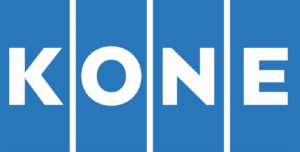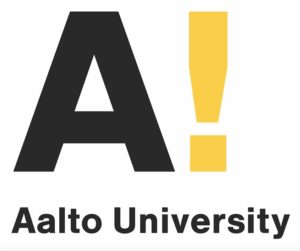
Teppo Voutilainen, Head of New Services & Solutions at KONE and Corporate Supervisor for Aalto-CEMS Business Projects in 2016 and 2017, explores the context of technological disruption and shares his insights into how KONE harnesses this disruption and the CEMS partnership into an opportunity for developing value for its customers. CEMS MIM students from Aalto University teamed up with KONE, exploring the need for technology with a human touch.
Urbanization means an opportunity for growth in innovative personalized services
Technological disruption and transparency make this truly the age of the customer. To succeed companies need to change their thinking from inside-out to outside-in. Driven by these circumstances, KONE works together with its customers and partners to identify their needs using co-creation and service design methods. KONE’s initiative called Winning with Customers essentially makes the customer the focal point of the company’s strategy and innovations. This means the company concretely in their customers’ shoes. One example is putting on cycling gear and walking through the corridors of a residential building with bicycles to identify the challenges faced by the office workers who cycle to work in the early morning. Using the hands-on experience from the customer cases, KONE is able to provide customers with flexible solutions to improve the customer experience.
Think how much the world has changed in a decade. Digitalization is more than just automation and artificial intelligence. In the elevator and escalator business, digital disruption helps KONE to create a more personalized People Flow experience. Technological disruption has permanently raised customers’ and users’ expectations: they demand increased convenience, efficiency and enjoyment. Naturally not all customers are interested in the latest technological innovation, and the beauty of KONE’s strategy ‘Winning with Customers’ is that it takes ownership of delivering what is important to their customers. Still, many of the new digital services are so cool, valuable and tailored to user needs that the users want to use them instead of having to use them.
Managing disruption
In addition to understanding customer needs, the value chain and the other players in the market, the second major challenge KONE has identified in a context of technological disruption is to be ready to change company processes, approach and culture. Here, proactivity and agility combined with a solid change management approach are required. It is also essential to understand the human component in changing the ways of working and thus, ultimately, changing the company culture. Finally, the third challenge is to build up the new skills and competences necessary in the era of technological disruption. This means that a company must strive for the development of skills and competencies and ecosystem thinking. It is essential for a “not-invented-here” attitude to be transformed into co-creation and co-innovation thinking.
KONE continues to adapt, re-invent and explore in these times of technological revolution, taking advantage of the CEMS business projects to further its advances into what some may view as unchartered and at times dangerous waters. KONE sees these unchartered seas of change as an opportunity to discover new worlds that enhance both company and customers alike. In 2017, KONE had two CEMS teams from Aalto University working on the challenges and opportunities of digitalization.
Reaping the benefits of automation while keeping humans at the heart of business
One of the CEMS teams looked at the opportunities of automated customer service. Like KONE, many organizations now have a myriad of automation technologies at their disposal, harnessing such benefits as robotic process automation, machine learning, and artificial intelligence. This multitude of options has flourished in what many see to be the fastest-paced era of change the world has ever seen; an era that has witnessed giant technological leaps and bounds in the areas of cognitive computing, text recognition, natural language processing, virtual assistants and cloud technologies. Within this highly topical and daunting context, the CEMS Aalto-KONE business project challenged students to look at how companies could reap the benefits of automation while still maintaining the personal touch and customer focus in their services.
On the surface, the technological inroads of the last few years offer almost limitless benefits to users and customers. Artificial intelligence, for example, can be used for understanding natural language and speech, providing services such as chatbots, or helping customers to browse and pinpoint the right information they require on the Internet. For employees, automated services offer the possibility to make their daily work more meaningful, simple questions being able to be catered for by robots while employees’ expertise can be used in more complex and ultimately satisfying issue resolution scenarios.
On the consumer side, changes in technology first need to be explored with potential users, for resistance to change may result from the unclear comprehension of new technology. Included in this approach is the awareness of the capabilities and limitations of the tool – machines can be as good as, or even better than humans in certain areas, but the human touch and unique aptitude to deal with complex, cognitive and emotional situations still provide the upper hand. Interestingly, a series of interviews with customers during the business project demonstrated that clients valued the speed and issue-resolution offered by automation over the human, on the condition that the robot or automated machine understood their needs properly compared to the interaction with a human interface.
It is also important that employees feel comfortable with technological disruption. Within KONE, various initiatives have been set up to cater for this aspect including forums to share information on up-and-coming changes, train-the-trainer workshops whereupon trainers then deliver on-site training in their respective countries on new technology and tools, and close support from Change Managers to explain the benefits and impact of implemented change or tools.

The CEMS Aalto-KONE experience: humans at the service of achievement
The students’ great commitment and professionalism has produced convincing results that tie in with and support the KONE strategy. The CEMS student team has provided an extensive academic report including customer survey results, and a final presentation for business representatives and the whole Aalto CEMS cohort. KONE representatives were positively surprised that the team was able to deliver even very concrete recommendations on what technical capabilities KONE should utilize first.
The CEMS student research and analysis enables the understanding of future trends which helps KONE in designing services to better meet customer expectations within a context of rapid technological innovation. Needless to say that a hands-on professional project within one of the world’s leading firms in its field has provided the student team with priceless experience and learning insights for the future.
CEMS would especially like to thank the invaluable input and supervision of the Academic and Business Tutors, respectively Dr. Esko Penttinen, Professor of Practice, Department of Information and Service Economy, Aalto University School of Business, and Sari Paulasaari, Global Solution Manager, Customer Care Centers and Customer Service Development at KONE – as well as special acknowledgement to the student team members for their high-caliber work on the project: Patricia N’Sombo, Gowsihan Vathanagopalan, Essi Porkka, Akane Saneyoshi, Michal Dudel.We would also like to thank Henrietta Haavisto, Director, Change Management, KONE Way Development for coaching the other CEMS team.

